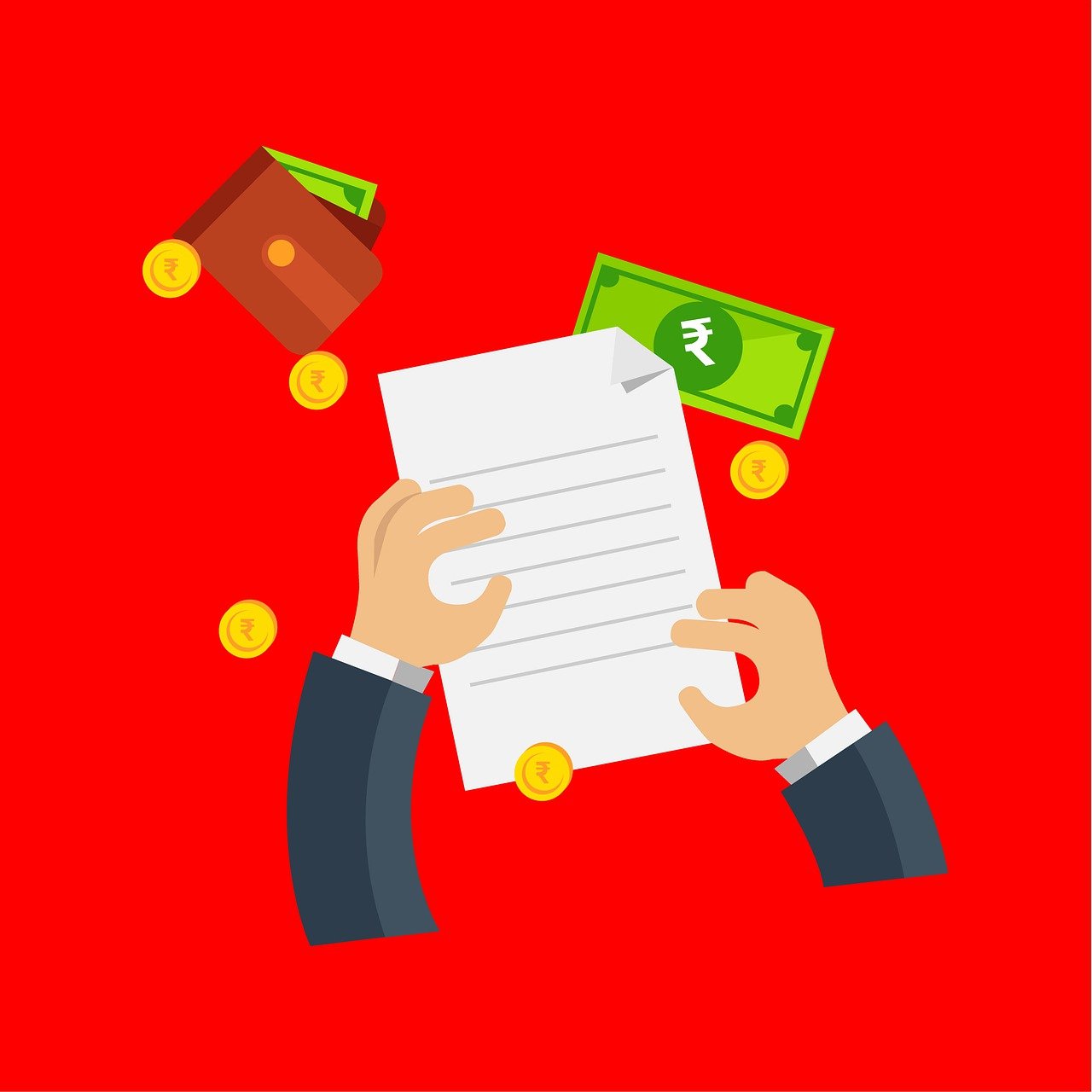In the constantly shifting landscape of digital finance, blockchain crypto has emerged as a groundbreaking force, pledging decentralized, secure, and transparent transactions. Let’s delve into the depths of blockchain crypto to understand its intricacies and explore its vast potential.
Understanding Blockchain Crypto
At its core, blockchain crypto is a distributed ledger technology that enables peer-to-peer transactions without the need for intermediaries. The key innovation lies in its decentralized nature, where transactions are recorded on a public ledger, ensuring transparency and immutability. Bitcoin, the first and most well-known cryptocurrency, introduced the world to the concept of blockchain, paving the way for a multitude of cryptocurrencies and decentralized applications (DApps).
The Rise of Cryptocurrencies
Cryptocurrencies have gained immense popularity in recent years, offering an alternative to traditional fiat currencies and revolutionizing the way we perceive and transact value. Bitcoin, Ethereum, Ripple, and Litecoin are among the leading cryptocurrencies, each with its unique features and use cases. The decentralized nature of cryptocurrencies empowers individuals to control their finances, bypassing the limitations of traditional banking systems.
The Role of Blockchain Technology
Blockchain technology serves as the backbone of cryptocurrencies, facilitating secure and transparent transactions across a distributed network. Its cryptographic algorithms ensure the integrity and authenticity of transactions, making it virtually tamper-proof. Beyond cryptocurrencies, blockchain technology finds applications in various sectors, including supply chain management, healthcare, voting systems, and identity verification.
Exploring Decentralized Finance (DeFi)
Decentralized finance, or DeFi, represents the next frontier in blockchain innovation, offering a wide range of financial services without the need for traditional intermediaries. DeFi platforms leverage smart contracts to automate transactions, lending, borrowing, and trading activities. This burgeoning sector has witnessed exponential growth, attracting billions of dollars in investments and transforming the way we engage with financial services.
The Promise of Smart Contracts of Blockchain Crypto
Smart contracts, often hailed as the cornerstone of blockchain innovation, hold tremendous promise in revolutionizing various aspects of business and commerce. These self-executing contracts operate autonomously, executing predefined actions when specific conditions are met, all without the need for intermediaries or manual intervention. The potential applications of smart contracts span across numerous industries, offering unprecedented levels of efficiency, security, and transparency.
1. Automation and Efficiency:
One of the most significant promises of smart contracts lies in their ability to automate complex processes and eliminate inefficiencies inherent in traditional contract execution. By encoding contractual terms into code, smart contracts enable automatic enforcement and execution, reducing the need for time-consuming manual processes and minimizing the risk of errors or disputes. This automation streamlines workflows, accelerates transaction speeds, and lowers operational costs for businesses across sectors ranging from finance and real estate to supply chain management and logistics.
2. Transparency and Trust:
Smart contracts operate on blockchain networks, which provide a transparent and immutable ledger of transactions. Every action performed by a smart contract is recorded on the blockchain, creating an indelible audit trail that can be accessed and verified by all relevant parties. This transparency enhances trust among stakeholders, as it eliminates the need to rely on intermediaries or third-party authorities to validate transactions. By leveraging blockchain technology, smart contracts offer unparalleled levels of transparency and accountability, fostering trust in business dealings and mitigating the risk of fraud or manipulation.
3. Cost Reduction and Disintermediation:
Traditional contracts often involve multiple intermediaries, such as lawyers, brokers, and escrow agents, who facilitate and oversee the execution of agreements. These intermediaries incur fees and add layers of complexity to transactions, contributing to higher costs and longer processing times. Smart contracts have the potential to disrupt this paradigm by enabling direct peer-to-peer interactions, bypassing intermediaries and reducing associated fees. By cutting out middlemen, smart contracts can significantly lower transaction costs, making it economically feasible to execute smaller-scale transactions that were previously impractical due to high overheads.
4. Enhanced Security and Reliability:
The cryptographic nature of blockchain technology ensures that smart contracts are tamper-proof and resistant to unauthorized modifications or alterations. Once deployed on a blockchain network, a smart contract’s code is immutable, meaning it cannot be changed or manipulated without the consensus of the network participants. This immutability enhances the security and reliability of smart contracts, protecting them from fraud, hacking, or external interference. Additionally, smart contracts are executed automatically according to predefined rules, eliminating the risk of human error or bias that may occur in manual contract execution processes.
5. New Opportunities for Innovation:
The flexibility and programmability of smart contracts open up new avenues for innovation and the creation of novel business models and applications. Developers can leverage smart contracts to build decentralized applications (DApps) that offer innovative solutions across various industries, from decentralized finance (DeFi) platforms and non-fungible token (NFT) marketplaces to decentralized autonomous organizations (DAOs) and supply chain management systems. As the capabilities of smart contracts continue to evolve and expand, they have the potential to reshape entire industries and create new opportunities for economic growth and development.
In conclusion, the promise of smart contracts extends far beyond mere automation of contractual agreements. These self-executing contracts have the potential to revolutionize the way businesses and individuals engage in transactions, offering unprecedented levels of efficiency, transparency, and security. As smart contract technology continues to mature and gain widespread adoption, it holds the key to unlocking new realms of innovation and driving forward the decentralized economy of the future.
Challenges and Opportunities of Blockchain Crypto
While blockchain crypto holds immense promise, it also presents several challenges that must be addressed to fully realize its potential. These challenges are accompanied by significant opportunities for growth and innovation within the blockchain ecosystem.
1. Scalability
Scalability remains a pressing issue for blockchain networks, particularly as the number of transactions continues to increase. The original design of blockchain technology, while secure and decentralized, struggles to handle large transaction volumes efficiently. As a result, network congestion and slow transaction processing times can occur, hindering the scalability of blockchain-based applications. However, several scalability solutions are being explored, including sharding, which partitions the network into smaller segments to process transactions in parallel, and layer 2 protocols like the Lightning Network, which enable off-chain transactions to alleviate network congestion.
2. Regulatory Uncertainties:
Regulatory uncertainties pose a significant challenge to the widespread adoption of blockchain crypto. The regulatory landscape surrounding cryptocurrencies and blockchain technology varies greatly from one jurisdiction to another, creating compliance challenges for businesses and investors operating in this space. Issues such as taxation, securities regulations, and anti-money laundering (AML) laws require clarity and consistency to foster trust and confidence in blockchain-based solutions. Collaborative efforts between industry stakeholders and regulatory bodies are essential to establish clear guidelines that promote innovation while addressing regulatory concerns.
3. Security Concerns:
Security remains a paramount concern in the blockchain ecosystem, as cyber threats and vulnerabilities continue to evolve. While blockchain technology offers inherent security features such as cryptographic encryption and decentralized consensus mechanisms, it is not immune to cyber attacks and exploits. Incidents such as hacks, scams, and smart contract vulnerabilities highlight the importance of robust security measures and best practices within the blockchain community. Enhanced cybersecurity protocols, rigorous auditing processes, and ongoing education initiatives are crucial to mitigate security risks and safeguard the integrity of blockchain networks and assets.
4. Interoperability and Standardization:
Interoperability and standardization are key challenges facing the blockchain industry, as the proliferation of blockchain platforms and protocols has resulted in fragmented ecosystems. Interoperability refers to the ability of different blockchain networks to communicate and transact seamlessly with one another, enabling interoperable DApps and cross-chain asset transfers. Standardization involves the establishment of common protocols, data formats, and interfaces to facilitate interoperability and promote collaboration across diverse blockchain platforms. Addressing interoperability and standardization challenges will enhance the interoperability of blockchain networks, foster innovation, and unlock new use cases and opportunities for collaboration.
Despite these challenges, blockchain crypto presents numerous opportunities for innovation, disruption, and growth across various industries:
1. Financial Inclusion:
Blockchain technology has the potential to promote financial inclusion by providing access to banking and financial services for underserved populations around the world. Decentralized finance (DeFi) platforms offer alternatives to traditional banking systems, enabling peer-to-peer lending, borrowing, and asset management without the need for intermediaries. By leveraging blockchain crypto, individuals in developing countries can access financial services, participate in the global economy, and improve their economic prospects.
2. Supply Chain Transparency:
Blockchain technology can enhance supply chain transparency and traceability by immutably recording the journey of products from manufacturer to consumer. By leveraging blockchain-based solutions, businesses can track and verify the authenticity, origin, and quality of goods throughout the supply chain, reducing counterfeiting, fraud, and supply chain inefficiencies. This transparency fosters trust among consumers, enhances brand reputation, and promotes ethical and sustainable business practices.
3. Data Privacy and Sovereignty:
Blockchain technology empowers individuals to take control of their data privacy and sovereignty by enabling self-sovereign identity solutions. Through blockchain-based identity management systems, individuals can securely store and manage their personal data, granting access to third parties on a need-to-know basis while maintaining privacy and security. This shift towards decentralized identity empowers users to protect their digital identities, reduce reliance on centralized authorities, and regain control over their personal information.
4. Innovation in Emerging Technologies:
Blockchain crypto serves as a catalyst for innovation in emerging technologies such as artificial intelligence (AI), Internet of Things (IoT), and edge computing. By integrating blockchain technology with AI and IoT devices, businesses can create decentralized autonomous organizations (DAOs) and autonomous machine-to-machine transactions. These innovations unlock new possibilities for automation, data sharing, and collaboration, driving efficiency and scalability across diverse industries.
In conclusion, while blockchain crypto faces significant challenges in scalability, regulatory uncertainties, security concerns, and interoperability, it also presents numerous opportunities for innovation, disruption, and growth. By addressing these challenges and capitalizing on the opportunities afforded by blockchain technology, we can unlock its full potential to revolutionize industries, empower individuals, and create a more inclusive and sustainable future.
The Future of Blockchain Crypto
As we gaze into the horizon of blockchain crypto, the landscape appears ripe with promise and potential. Several key trends and developments are poised to shape the future trajectory of this transformative technology:
1. Scalability Solutions:
One of the primary challenges facing blockchain networks is scalability. As the demand for decentralized applications and transactions continues to grow, blockchain platforms must evolve to accommodate higher throughput and scalability. Innovative solutions such as sharding, sidechains, and layer 2 protocols are being actively explored to address these scalability concerns. By enabling more efficient transaction processing and network scaling, these solutions will unlock new possibilities for blockchain adoption and use cases.
2. Interoperability:
In the fragmented world of blockchain ecosystems, interoperability has emerged as a crucial focus area. Interoperability standards and protocols aim to facilitate seamless communication and value transfer between disparate blockchain networks. Projects like Polkadot, Cosmos, and interoperability protocols such as Interledger are working towards creating a unified and interconnected blockchain ecosystem. By enabling cross-chain compatibility and interoperability, these initiatives will foster collaboration, innovation, and the emergence of a truly decentralized internet of value.
3. Regulatory Clarity: Regulatory uncertainty has long been a barrier to mainstream adoption of blockchain technology and cryptocurrencies. However, as governments and regulatory bodies around the world gain a better understanding of blockchain’s potential and risks, we are witnessing a gradual shift towards clearer regulatory frameworks. Regulatory clarity and compliance standards will provide much-needed confidence and stability to investors, businesses, and users, fostering greater adoption and integration of blockchain solutions into traditional industries.
4. Institutional Adoption: Institutional participation in the blockchain space is poised to accelerate in the coming years. Established financial institutions, corporations, and governments are increasingly recognizing the value proposition offered by blockchain technology, particularly in terms of efficiency, transparency, and security. Initiatives such as central bank digital currencies (CBDCs), blockchain-based supply chain management, and tokenization of assets are gaining traction, signaling a broader acceptance and integration of blockchain into mainstream finance and industry.
5. Emerging Use Cases: Beyond cryptocurrencies and decentralized finance (DeFi), blockchain technology is finding applications in a diverse range of sectors, including healthcare, supply chain management, voting systems, and digital identity. The advent of non-fungible tokens (NFTs) has opened up new avenues for digital ownership, provenance tracking, and monetization of digital assets. As blockchain platforms mature and become more accessible, we can expect to see a proliferation of innovative use cases and solutions that leverage the unique capabilities of blockchain technology.
The future of blockchain crypto is brimming with opportunities for innovation, disruption, and positive transformation. With ongoing advancements in scalability, interoperability, regulatory clarity, institutional adoption, and emerging use cases, blockchain technology is poised to redefine the way we transact, collaborate, and interact in the digital age. As we embark on this journey towards a decentralized future, the potential of blockchain crypto to reshape industries, empower individuals, and foster global prosperity is truly limitless. Blockchain crypto represents a paradigm shift in how we perceive and transact value, offering decentralized, secure, and transparent solutions to age-old problems. From cryptocurrencies to decentralized finance and smart contracts, blockchain technology continues to redefine the boundaries of innovation. As we navigate the complexities and opportunities of this burgeoning ecosystem, one thing remains certain: the potential of blockchain crypto is limitless, and its impact will continue to reverberate across industries for years to come.





















